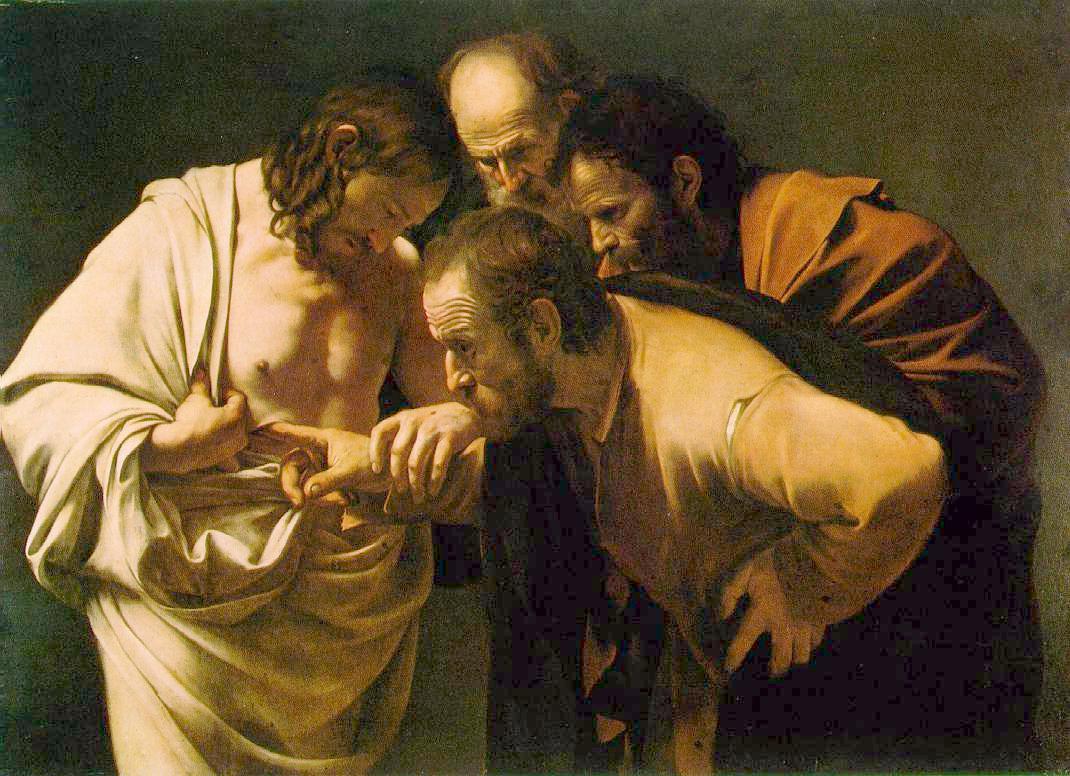
“While Jesus’ disciples were talking about what had happened, Jesus appeared and greeted them. They were frightened and terrified because they thought they were seeing a ghost.
“But Jesus said, “Why are you so frightened?”
Why do you doubt? 39 Look at my hands and my feet and see who I am! Touch me and find out for yourselves. Ghosts don’t have flesh and bones as you see I have.”
After Jesus said this, he showed them his hands and his feet. The disciples were so glad and amazed that they could not believe it. Jesus then asked them, “Do you have something to eat?”
“They gave him a piece of baked fish. He took it and ate it as they watched.”
Luke 24:36-43
Sometimes in a story, you get a vivid sense of what really happening. Luke’s account ignites that in me. With the flair of the dramatic– Jesus, freshly resurrected from the dead, bursts into the room and he scares the bejeezus out of everyone.
I guess it was one of those times when you just had to be there in order to really get it.
“Frightened” and “terrified”–it takes two words to describe this spooky experience.
Not only that, but they got real freaky, after all, He had to be a ghost! I can only imagine their fear at that moment. I think everyone present bolted to the door. But wait for a second! “The door is still locked?! OMG, what has just happened?”
We see Jesus [I think he was lovingly amused] point out that he was still a human being–look at me! Think for a second, have you ever tried to get a pet dog, who is so scared he’s peeing on the floor, to come to you? I see the disciples kind of half crawling, stooped, and very unsure about this.
They slowly encircle Jesus and as they come, I have to believe He’s laughing. He has returned from the dead. And they have no idea!
He is laughing from the pure joy of one who has endured the worst of a very real hell.
Jesus has come out on the other side, intact. I believe Jesus is reveling at the moment, and he is among friends whom he loves and vice versa. He is alive, he has done the impossible, and I can only imagine everyone is laughing and crying at the same time!
I believe each of us has walls.
Yes, you and I. Walls. These borders give us security and protection. We feel we have to have them, or else. The disciples feel like there’s security in numbers and safety in their walls that protect them. I can so relate.
But Jesus insists on penetrating our walls.
And suddenly we come ‘face-to-face’ with the dead one who’s now alive. The dead man now lives!
Look closely now, it is resurrection power–and it’s the most powerful force in the universe, more intense than the sun. It’s funny, when Moses prostrated himself before the Lord’s glory, he changed. Not only that, but he had to take precautions to cover his face when he returned to camp. These disciples however have just seen the glory of God first-hand.
As broken believers, we must be prepared for any eventuality. Jesus can and will burst into our homes, and into our very lives. Can you hear him laugh?
When he comes, nothing really is the same again. He loves his disciples too much to leave them in a dark stuffy room.
The resurrected Jesus is coming for you!
**********
“Here I am! I stand at the door and knock. If you hear my voice and open the door, I will come in and eat with you, and you will eat with me.”
Revelation 3:20, NCV












